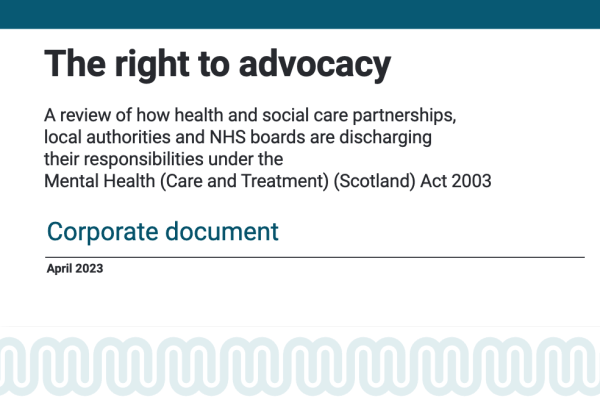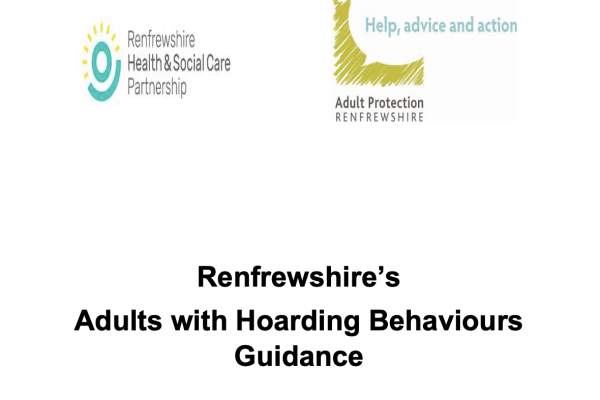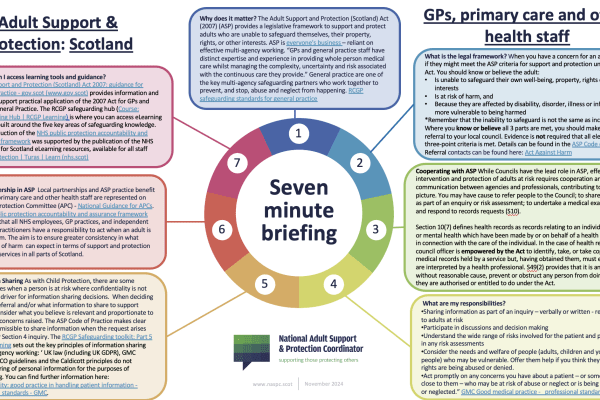The right to advocacy: A review of how health and social care partnerships, local authorities and NHS boards are discharging their responsibilities under the Mental Health (Care and Treatment) (Scotland) Act 2003
The Mental Health (Care and Treatment) (Scotland) Act 2003 imposed a duty on local authorities and health boards to collaborate to ensure the availability of independent advocacy services in their area. The Act gave everyone with mental illness, learning disability, dementia and related conditions the right to access independent advocacy support.





